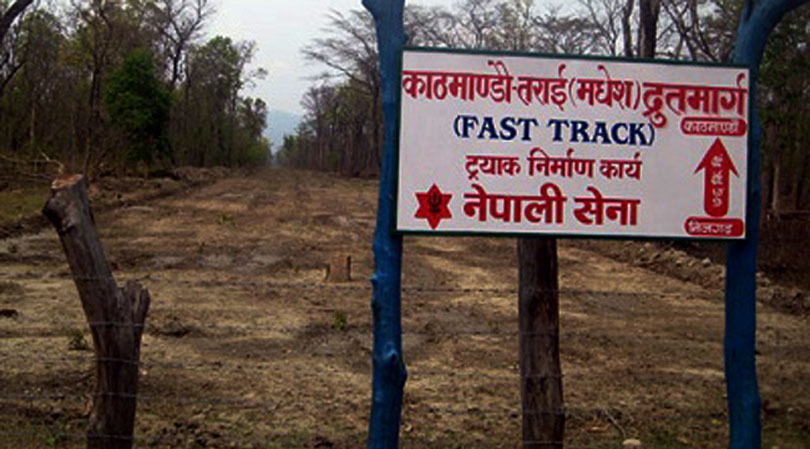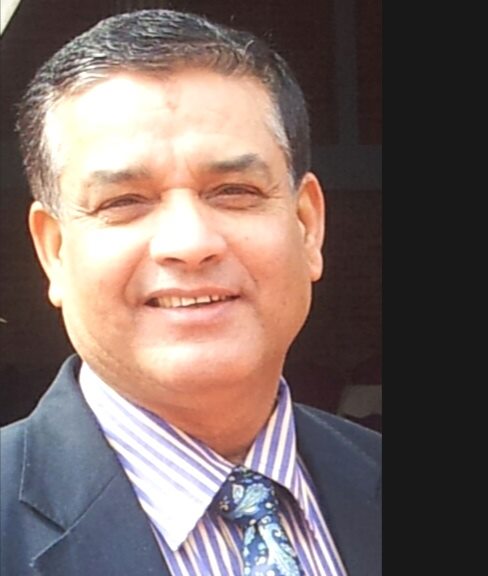It's getting late for the authorities to review their work and correct the shortcomings seen in the last six months.
Covid-19 has inflicted casualty not only on human beings but all other sectors—economic, social and psychological—with immense fear of uncertainty in everyone’s mind. No one knows when it will end. Experts predict that the entire world would suffer. Poor countries like Nepal will surely suffer the most and face the most daunting challenges.
Initially, the spread of the virus was relatively slow in nations such as China, Europe, the US and even India. But these countries—except China—failed to take proactive measures to stop the contagion from spreading further.
In Nepal, in the beginning of the outbreak, our policies were limited to issuing state advisory to people for self-isolation followed by few efforts of RDT and PCR tests and setting up ofquarantine facilities, which were poorly equipped. Before long, the killer virus reached our doorsteps. People witnessed government’s lack of preparedness, even though ample amount of time was available and we still had workable amount of resources. In fact, the government threw people at the mercy of God. Monitoring and regulation of porous borders at the south was not properly followed. As a result, the virus found space to spread exponentially.
More criticality lies now with the rumor and the rising panic with lesser or even nonexistent civilian health and medical facilities across the country to handle the cases. Media reports few days ago said that Epidemiology and Disease Control Division was understaffed to take care of necessary records and the hospitals in government’s radar also were incapable of handling cases satisfactorily because the available hospitals designated to handle Covid-19 patients have run out of capacities. The state of uncertainty across the country has sent the people in panic mood.
At the worst situation, people will be compelled to resort to their home quarantines defying hospitals because hospitals will no longer be able to take the patients anymore. The panic, due to increased deaths, will add to anxiety of people, apart from badly impacting nation's economy and social life, creating deep distrust with the government, which could finally result in national security challenge.
In this situation, the Corona Crisis Management Centre (CCMC) set up by the government will have to work pragmatically and take up theresponsibilities to combat Covid-19. It needs to work for increasing medical facilities in every hospital, deploying more medical teams, including quick reaction teams (QRTs), and deploy them on the ground, to ensure smooth and uninterrupted treatment process at every level.
For better outcomes, CCMC should work together with medical teams and medical experts including the scientists, scholars, researchers related to the field to redesign a pragmatic approach to deal with what seems like an impending 'national emergency.' In the worst case, as the crisis deepens the security forces with proven ability in handling disasters will have a crucial role to play. Similarly, a thought can be given for improving the infrastructures that already exist in many hospitals across the country by adding more resources.
Let us hope that the unexpected rise of current pandemic would not lead to national security challenges to the point where the civil authority’s capability is exhausted and even security forces become unable to manage the severity of consequences at the eleventh hour, with nation’s economy plunged, politics eroded, basic requirements like food and health service already scarce and threats of terror reaching to the point where law, order, and stability also begin to break down.
In times of national emergency of this scale, medical infrastructures of entire nation may have to be managed from the center by decentralizing authorities to the health facilities. It would be imperative to properly utilize government funds and resources to develop health facilities by the security organs. Their support to the civil authorities will instill confidence in the common people.
Our planners failed to see the potential threat of the pandemic when it started from Wuhan last year. We failed to learn lessons from how China controlled the pandemic and saved lives of people. If we had begun by setting up Covid-19 hospitals like in China, we would not have been in the situation we find ourselves in today.
It's getting late for the authorities to review their work and correct the shortcomings seen in the last six months.
The author is former Nepal Army Spokesperson.
- Source : https://myrepublica.nagariknetwork.com/
**********************
The Role of the Nepalese Army in Strategic Road Projects

Nepal Army is known to be equipped with the civil engineering skills needed to contribute to nation building programs, having already constructed 1030 kilometers of roads in various areas of Nepal, particularly linking the Northern and Southern parts to the rest of the country. In addition, the Army has also undertaken the construction of around 600 kilometers of roads and more recently the construction of the Kathmandu-Terai Madhesh Express Way has, however, drawn criticisms for its temporal progress.
Despite already having anticipated challenges, this mega highway project has been prioritized by an old institution like NA as an “infrastructure of national pride” to bear a strategic significance and help to append public trust towards the government. As such, the Army has targeted to build the Expressway as an “exemplary state of the art of civil construction” in South Asia, and ultimately contribute to the socio-economic development of the country.
As the primary role of a soldier is to safeguard the nation, the majority of the soldiers in the Nepalese Army are involved in peacetime soldiering, continuing to train and maintain the highest operational standards throughout their careers.
While the manpower involved in civil works and engineering are more than capable of undertaking these civil constructions, it is important to note that the Army is more prone to controversies, especially when it comes to the country’s national security. While taking up responsibility, all factors must be fully evaluated so that wrong decisions made at the strategic or operational level should not jeopardize institutional professionalism at the tactical level and even erode its prestige.
Nevertheless, the military force is capable of committing nation-building efforts through environmental protection, disaster management, infrastructure development, as well as through the construction of strategic roads, even railway links and national highways. The NA is also fairly equipped to construct roads, bridges, tunnels, causeways, helipads and airfields, during both peace and wartime.
One can take note of the American Civil War, during which the US Army Corps of Engineers had played a significant role in its mission to deliver vital public and military engineering services; partner in peace and war to strengthen their nation’s security; energize the economy and reduce risks of natural disasters.
Thereafter, the Corps of Engineers became the lead federal navigator in constructing many strategic highways under its supervision, such as the Panama Canal, the Pentagon and many other smaller canals and civil projects. Inevitably, a certain amount of criticism is bound to appear whenever diligent manpower is utilized without giving much care to what others say. Similarly for the future of the NA, critics may certainly bring forth non-issues of detrimental environmental effects or the durability of projects, without considering unforeseen challenges. Nevertheless, the mantra that the NA should abide by is to maximize cohesiveness across multiple agencies and to utilize resources to create a greater impact in “nation building” as core interest.
The lessons that would then derive from such undertakings would be to analyze the critical capabilities vis a vis support from stakeholders and “whole-of-government approach” to take responsibility rather than put blame on “subordinate institution”.
Therefore, any mega projects must broadly define the possible challenges in advance, and then incorporate all agencies and institutions to work together to achieve the goal with great efficacy. Any criticism in regard to the timeline of such a mega project is unique in that it can mirror and eulogize the ruling political party, where a functional infrastructure progression plays a vital role in proving their ability, credibility and their governance capacity.
Every summer after a torrential rainfall, Nepal’s hills drain lots of water to cause major landslides. During this time, it is common to hear news of people digging through rubble, desperately looking for loved ones and trying to salvage necessities for survival. In addition, during flash floods and forest fires, the Nepalese Army along with other security agencies are heavily deployed to mitigate such calamities, the most recent one being the COVID 19 crisis. In the eyes of the taxpaying public, the role of these security agencies should never be undermined.
The popular Trans-Himalayan Multi-dimensional Connectivity Network (THMCN) is an economic gateway to connect the country through three major corridors- the Koshi, Gandaki and Karnali Economic Corridor- linking Nepal with China. Along with THMCN, the strategic Kathmandu-Terai expressway is valuable project for the country’s development. Keeping in mind an increasing civil-military cooperation, the Nepalese Army’s engineering capability and resources could be utilized in various other projects in the future, including the Kathmandu-Pokhara-Lumbini extension of the China-Nepal railways, as well as various other strategic road projects included in the national development plans.
Hence, responsible government authorities should refrain from discouraging a security person of spirit or courage in regards to their work and progress because there could be other numerous constraints and difficulties that need to be dealt with in order to complete those projects as desired.
- Source : https://english.kathmandupati.com/



No comments:
Post a Comment
बेनाममा अरुलाई गाली गलौज गर्दै जथाभाबी कमेन्ट लेख्नेहरु लाई यो साईटमा स्थान छैन तर सभ्य भाषाका रचनात्मक कमेन्ट सुझाब सल्लाह लाई भने हार्दिक स्वागत छ । तल Anonymous मा क्लिक गर्नुश अनी आफ्नो सहि नाम र सहि ईमेल सहित ईंग्लिश वा नेपाली मा कमेन्ट लेखी पठाउनुश, अरु वेबसाईट र यस् मा फरक छ बुझी दिनुहोला धन्यवाद । address for send news/views/Article/comments : Email - info@nepalmother.com - सम्पादक